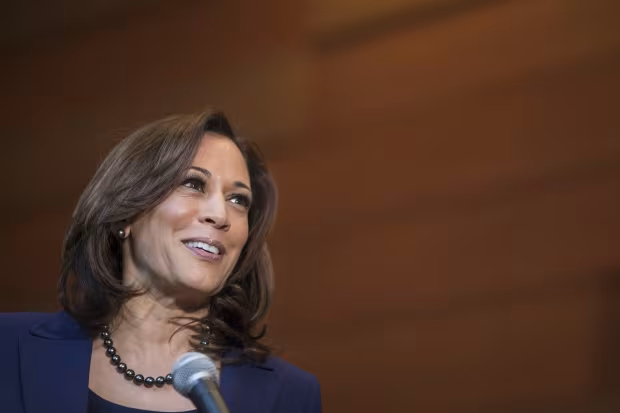TikToker Tori Grier, known for her political commentary, sparked a heated discussion after removing the Palestinian flag from her profile following her public support for Kamala Harris in the upcoming election.
Grier was asked by a commenter to remove the flag, and she responded, “I will happily take it out of my bio,” explaining that while she still supported Palestine, she would no longer do so publicly after receiving backlash.
This decision triggered a larger conversation within the Free Palestine movement, questioning whether it’s possible to support Palestinian liberation while voting for Kamala Harris, given her stance on Israel.
One prominent response came from Maya Abdallah, a Palestinian-American advocate for Palestinian rights on TikTok.
Abdallah criticized Grier, claiming she said she would “never support Palestine again,” and argued against voting for Harris, urging people to consider third-party options instead.
Abdallah’s callout led to a back-and-forth exchange between the two creators and their followers, with tensions escalating as some accused Abdallah of anti-Blackness for seemingly targeting
Black content creators in her critiques. This brought up a broader conversation about anti-Blackness and tone-policing within the Palestinian liberation community.
In an attempt to resolve the conflict, Grier and Abdallah agreed to have a live discussion. During the conversation, Grier expressed frustration, stating that Abdallah had misrepresented her words, as she had only said she would no longer support Palestine publicly, not that she would stop supporting it entirely.
Grier also defended her decision to vote for Harris, citing concerns about protecting the rights of Black Americans. Abdallah, meanwhile, maintained her stance on voting third-party but expressed a desire to find common ground.
However, the live discussion fueled even more controversy. Viewers took issue with Abdallah frequently muting and interrupting Grier, as well as repeatedly telling her to “calm down” when Grier became frustrated.
This was seen as condescending and added to the perception of tone-policing, with some feeling it played into stereotypes about Black women being “aggressive.” The debate over tone-policing in activist spaces became a focal point, highlighting the racism that can exist within pro-Palestinian movements.
The incident had mixed reactions. Some Black people, feeling alienated by the perceived anti-Blackness, halted their public support for Palestine. Others continued to support the cause while calling out the issues within the movement, balancing their stance by both critiquing the community and endorsing Kamala Harris as the better option in the election.
Many Black voters, like Grier, support Harris out of concern for safeguarding Black rights in America, even if they disagree with her stance on Israel.
This controversy exposes the complex intersectionality at play—particularly how marginalized communities, such as Black Americans and Palestinians, experience interconnected yet distinct forms of oppression.
While some pro-Palestinian activists criticize U.S. politicians like Harris for their tepid stance on Palestine, many young Americans, especially from marginalized groups, see Harris as the lesser of two evils compared to Donald Trump, whose administration vocally supported Israel’s military actions in Gaza. Trump’s re-election, many fear, would further harm marginalized communities both domestically and abroad.
Harris, though supportive of Israel’s right to defend itself, has also expressed empathy for the Palestinian people. In a statement, she acknowledged the devastating loss of life in Gaza, calling the suffering “heartbreaking,” and has pushed for a ceasefire. This nuanced position creates a dilemma for voters who wish to hold her accountable while balancing other pressing domestic issues.
The intersectionality of this issue shows that supporting Harris doesn’t have to mean sidelining the fight for Palestinian justice. It’s possible to vote for her while continuing to advocate for Palestine through other means, such as activism, education, and grassroots movements. Taking multifaceted approach allows voters to address both domestic and global injustices simultaneously, even as they navigate the complexities of balancing these struggles.






